Awards
-

Academy of Country Music Award Nominations And 1 Win (Man of the Year, 1967)
-

18 Primetime Emmy
Nominations And
12 Wins -

Grammy Lifetime
Achievement Award -
5 Golden Globe Award Nominations And 1 Win (Best Actor, 1967)
-

3 Stars On Hollywood
Walk Of Fame
(Film, Music, TV)
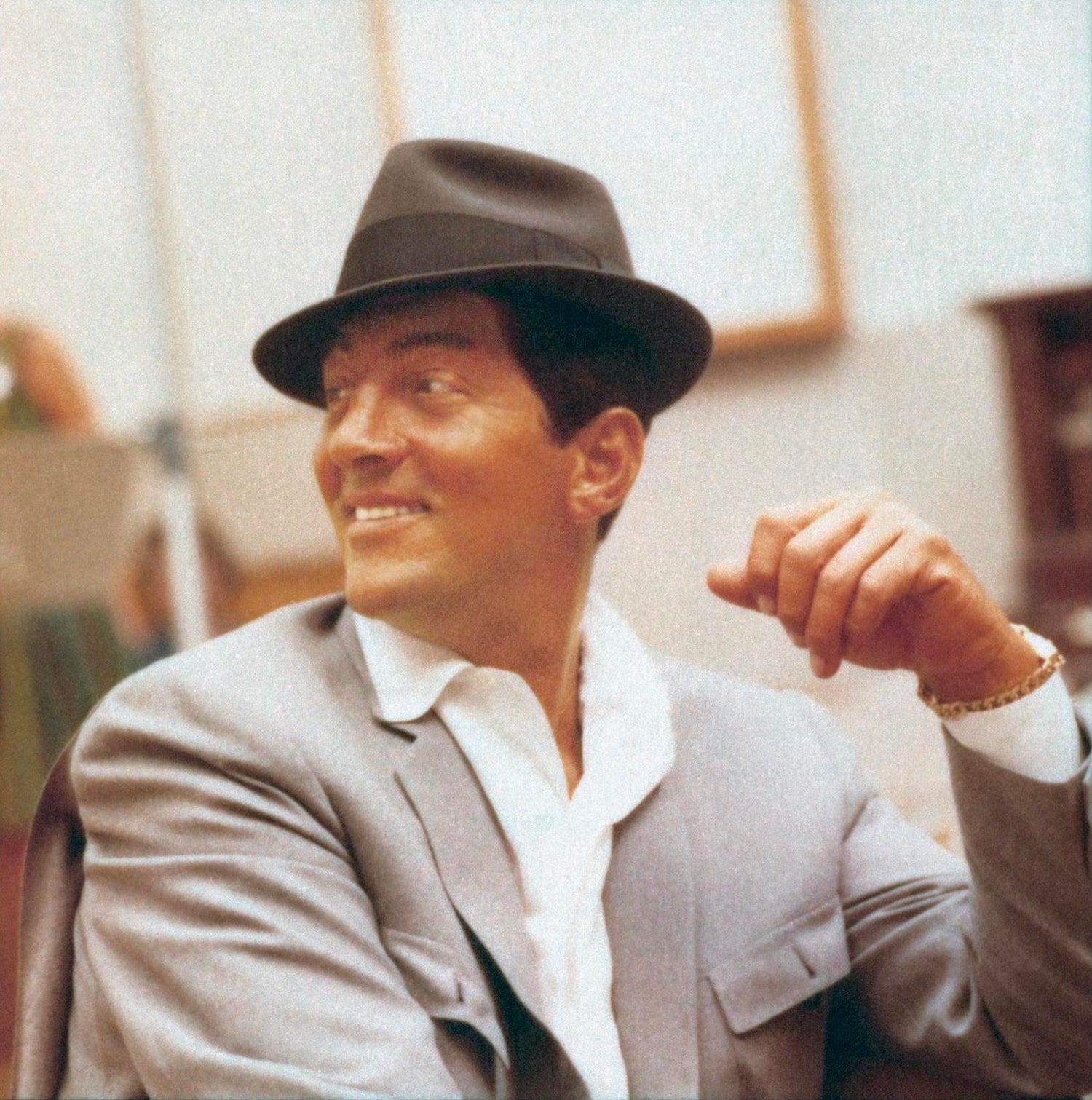
In the smoky, dimly lit lounges of mid-20th century America, where laughter and music meldedinto an irresistible symphony, there was one man who epitomized the essence of cool: Dean Martin, the total entertainer.
With a velvety baritone that melted hearts, a razor-sharp wit that left audiences in stitches, and a natural charisma that lit up the silver screen, he effortlessly transcended the boundaries of traditional performance across more than four remarkable decades.
Martin’s extraordinary journey into showbiz began in the unlikeliest of places, Steubenville, a tough, eastern-Ohio town nicknamed “Little Chicago,” where gambling and brawling were the norm. Born Dino Paul Crocetti to an Italian family, he grew up immersed in Italian culture and language.
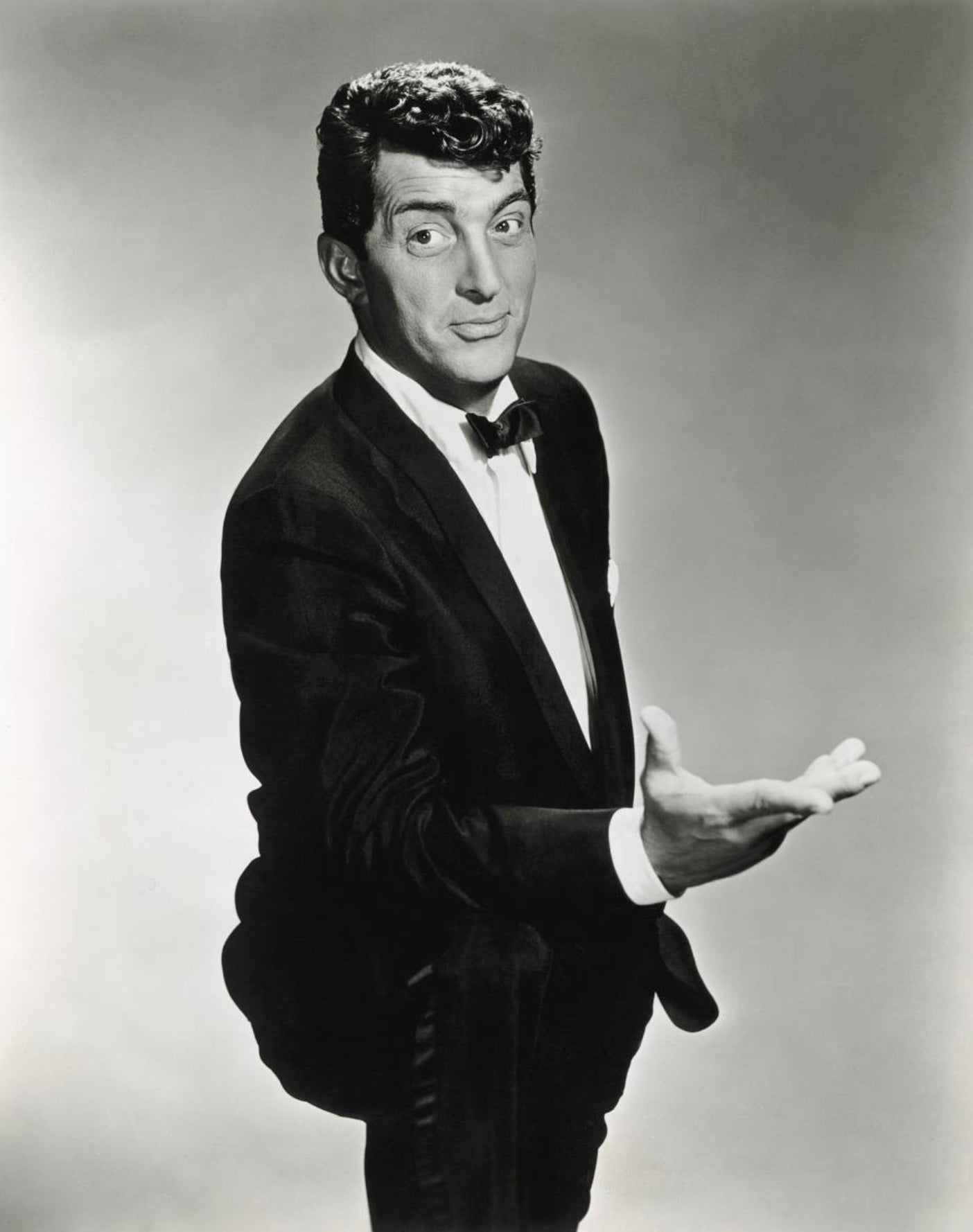
He dropped out of high school at the age of 15 before stepping into the boxing ring as a welterweight billed as Kid Crochet. Soon after, Martin traded his gloves for a deck of cards and began dealing poker and blackjack at the local speakeasies. But it was after hours, in local clubs, that he honed his vocal talent, inspired by Bing Crosby’s euphonious delivery. Aided by his underworld acquaintances and armed with a new name, Dean Martin began his climb to the top.
His path ultimately led him to New York City where serendipity brought him together with a young Jerry Lewis in 1946. Fast friends, they eventually wound up on the same bill at the 500 Club in Atlantic City, New Jersey. It was here that their unique stage act was born, with Martin serenading the audience while Lewis interrupted with his zany antics. The handsome Italian crooner and the goofy kid caught lightning in bottle, unleashing a comedy phenomenon that would captivate audiences coast to coast for the next decade.
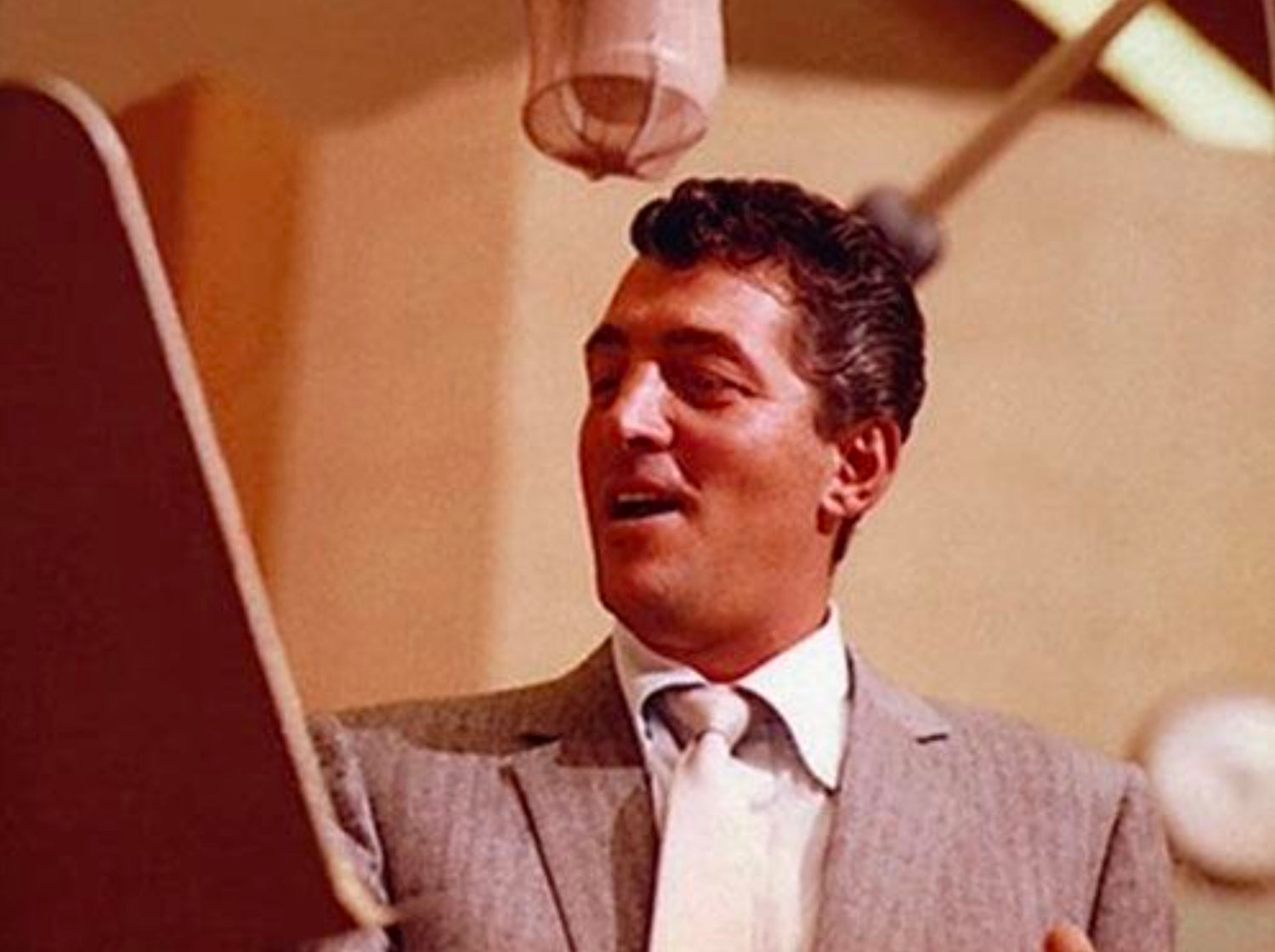
During this amazing era, Martin and Lewis emerged as the hottest act in America, ruling the radio with “The Martin and Lewis Show,” while their regular appearances on NBC’s “The Colgate Comedy Hour” became must-see television. But the glitz and glamour of Hollywood beckoned, and in 1949, the acclaimed duo embarked on a prolific movie career, and would star in 16 feature films for Paramount Pictures. Meanwhile, Martin’s music career soared to new heights as he recorded a string of Top 40 hits for Capitol Records, including timeless classics like “Sway,” the Academy Award-nominated “That’s Amore,” and the chart-topping sensation “Memories Are Made of This.”
But, as the adage goes, all good things must come to an end. Martin and Lewis broke up after a farewell performance at the Copacabana Club on July 25, 1956; 10 years to the day after their auspicious debut together. It was a daring step for Martin, who was widely expected to failwithout his partner. Yet, instead of fading into obscurity, Martin’s star continued to rise as a solo act.
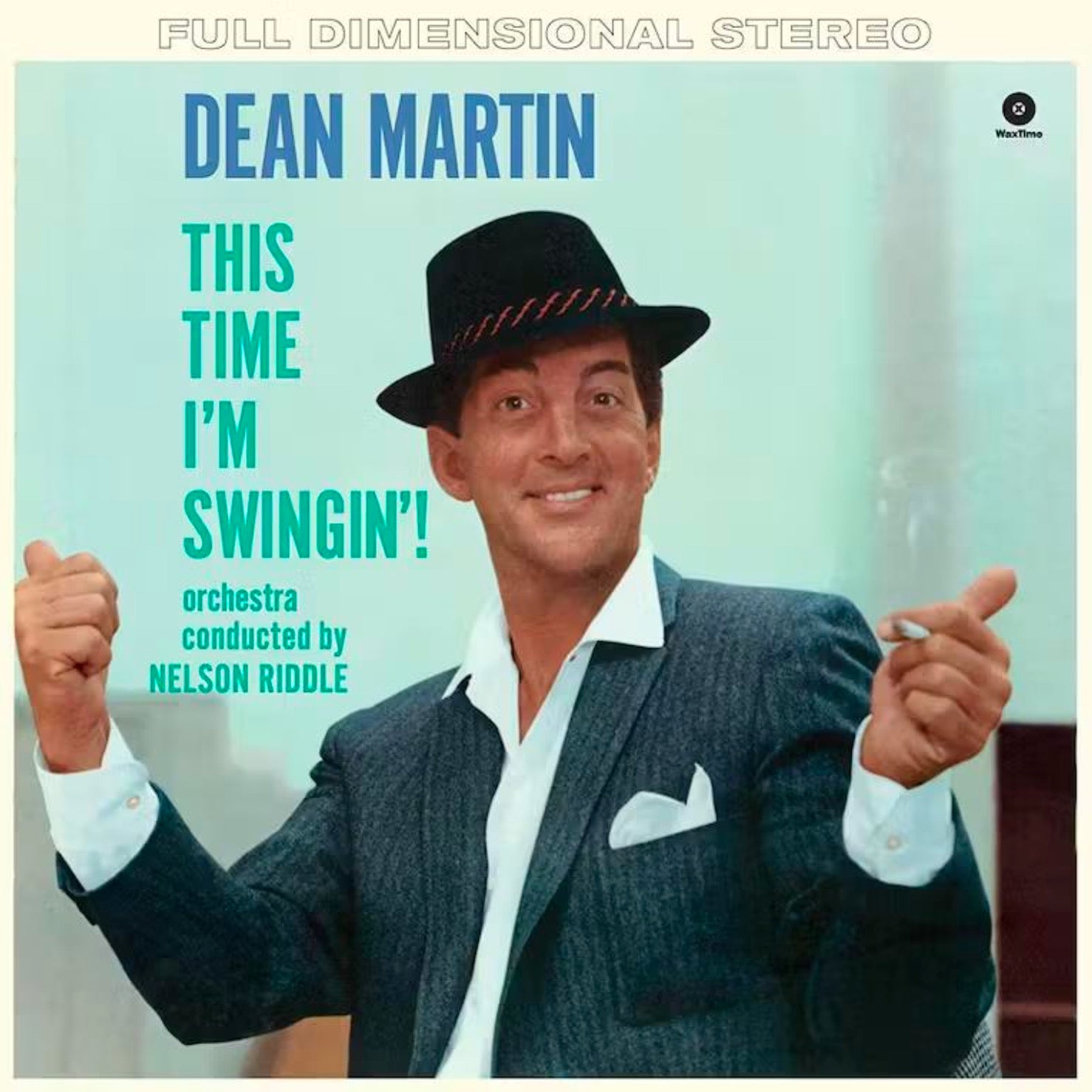
Returning to his roots on the nightclub circuit, he captivated audiences in Las Vegas while reclaiming his place on the music charts with another run of hit songs including “Volare” and “Return to Me.” Martin further defied expectations by delivering a string of memorable performances in dramatic roles in critically-acclaimed films like The Young Lions (with Marlon Brando and Montgomery Clift) and Some Came Running (with Frank Sinatra).
Martin went on to portray another western icon with his role as Dude in Howard Hawks’ landmark Rio Bravo, alongside John Wayne and Ricky Nelson. The film included an unforgettable duet with Martin and Nelson on the western classic “My Rifle, My Pony, And Me.” Country music would be revisited often throughout his career, as Martin pioneered the Countrypolitan sound with hits including “Houston,” “Gentle on My Mind,” “Little Ole Wine Drinker, Me.”
The 1960s marked a pivotal chapter in his career. In February 1960, he was among the first entertainers to be honored on the Hollywood Walk of Fame, receiving individual stars for his achievements in movies, music, and television. Later that year, he left Capitol to join Sinatra’s fledgling label, Reprise Records, but not before releasing another batch of hits, “Ain’t That a Kick in the Head” and “You’re Nobody till Somebody Loves You.”
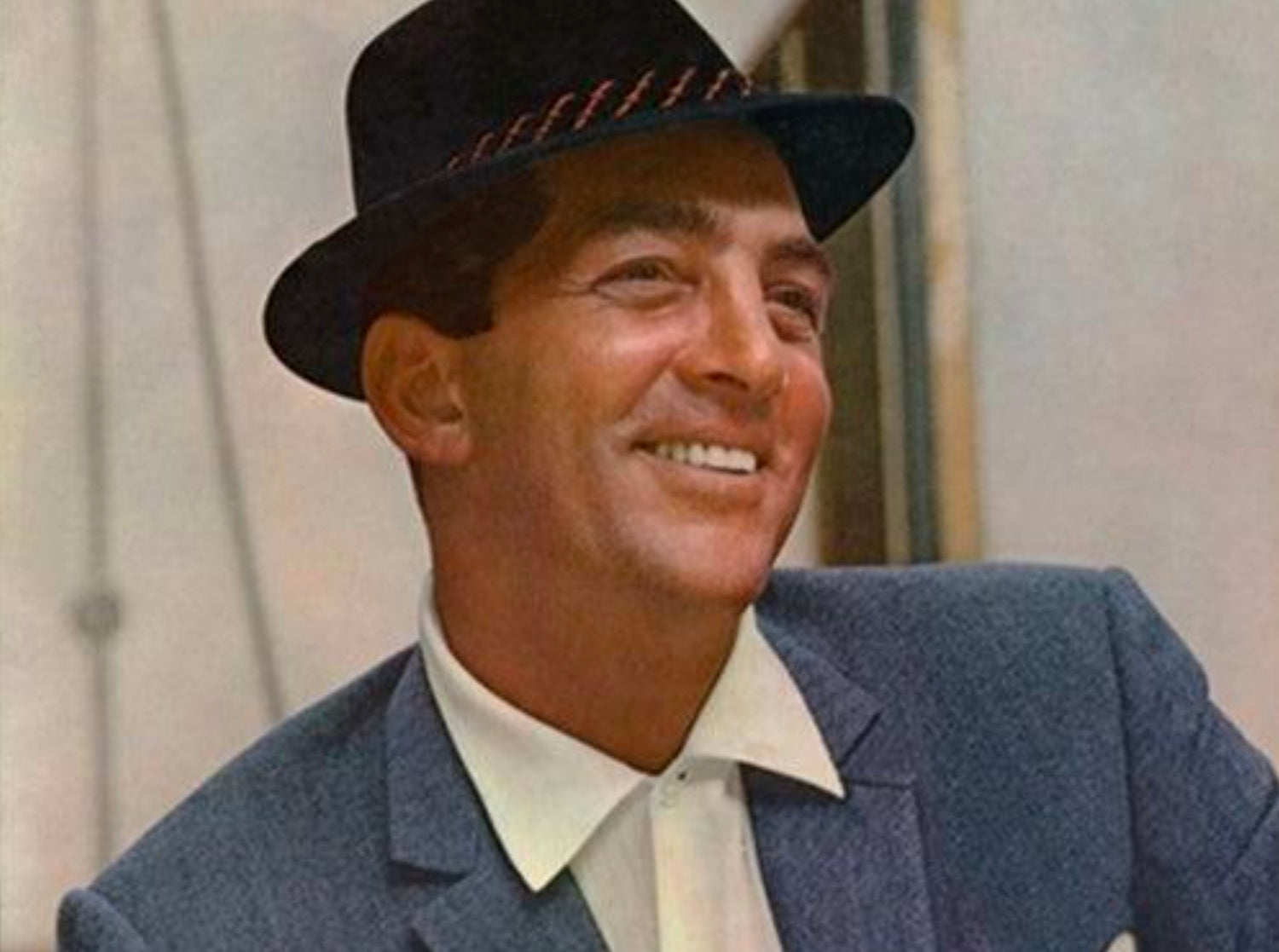
In the midst of this successful transition, Martin found himself at the heart of the legendary Rat Pack, a group of entertainers that included Sinatra, Sammy Davis Jr., Peter Lawford, and Joey Bishop. Together, they redefined the meaning of cool with their iconic heist film, Ocean’s 11, and left an indelible mark on Las Vegas. Martin would continue to be a Vegas mainstay for decades to follow, with an unprecedented run of residencies at strip mainstays such as the MGM Grand and Bally’s while playing to over one million fans. Since then, Vegas residencies have become standard for major entertainers for everyone from Elvis and Elton John to Adele and U2.
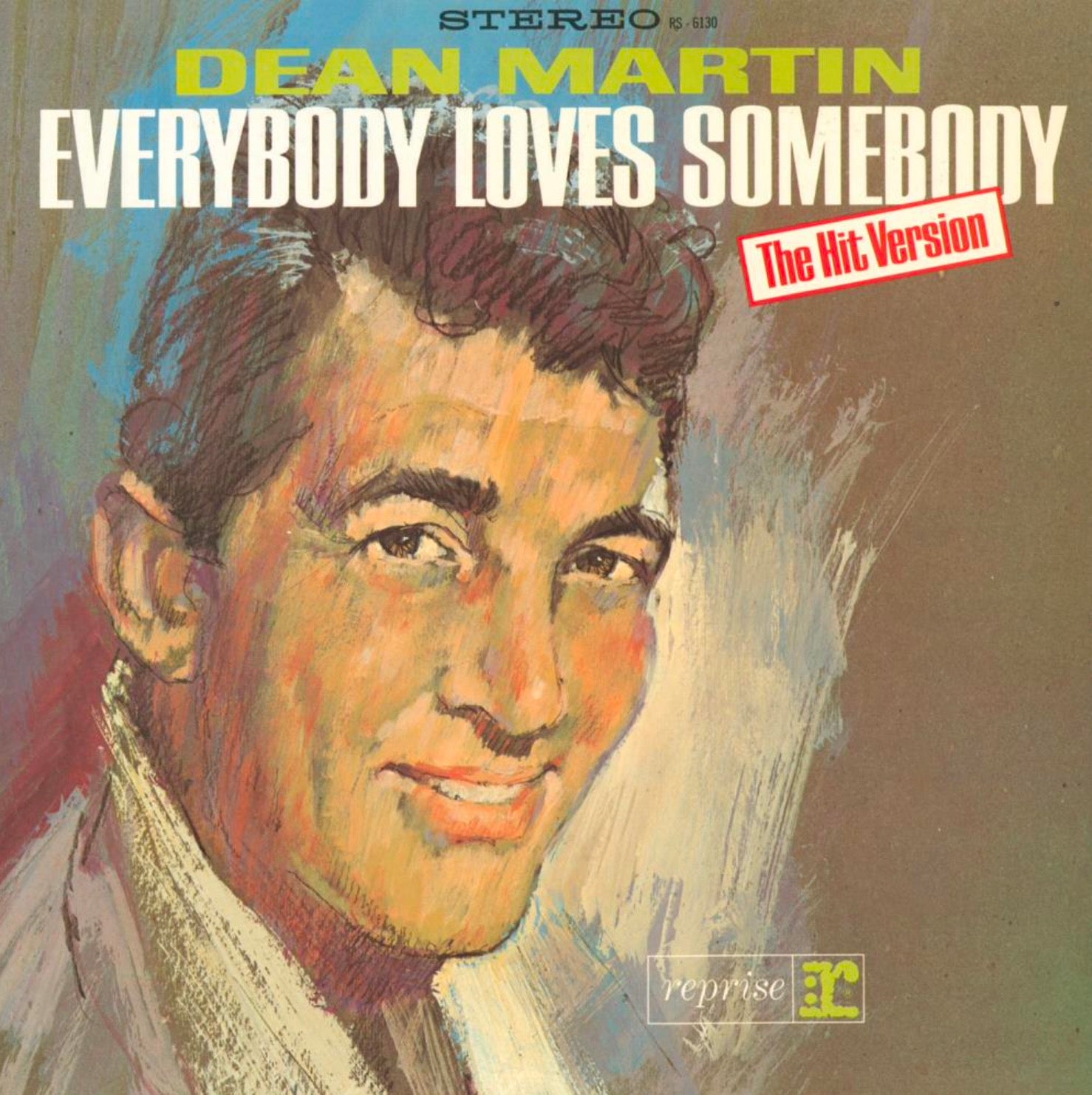
Beatlemania was at peak frenzy in 1964, but Martin – unlike his 12-year-old son, Dean Paul Martin – was not a fan of rock ’n’ roll. With the mop tops dominating the pop charts, Martin boasted to his son: “I’m gonna knock your pallies off the charts.” And on August 15, he did just that, when “Everybody Loves Somebody” dethroned the Beatles’ “A Hard Day’s Night” from its perch at #1 on the Billboard Hot 100.
“Everybody Loves Somebody” became his signature tune and the theme for “The Dean Martin Show,” a wildly successful television variety-comedy series that he hosted on NBC from 1965 to 1974. The show became a primetime staple and one of the highest-rated shows on televison for nearly a decade while earning the host a Golden Globe Award for Best Actor in a Television Series – Musical or Comedy.
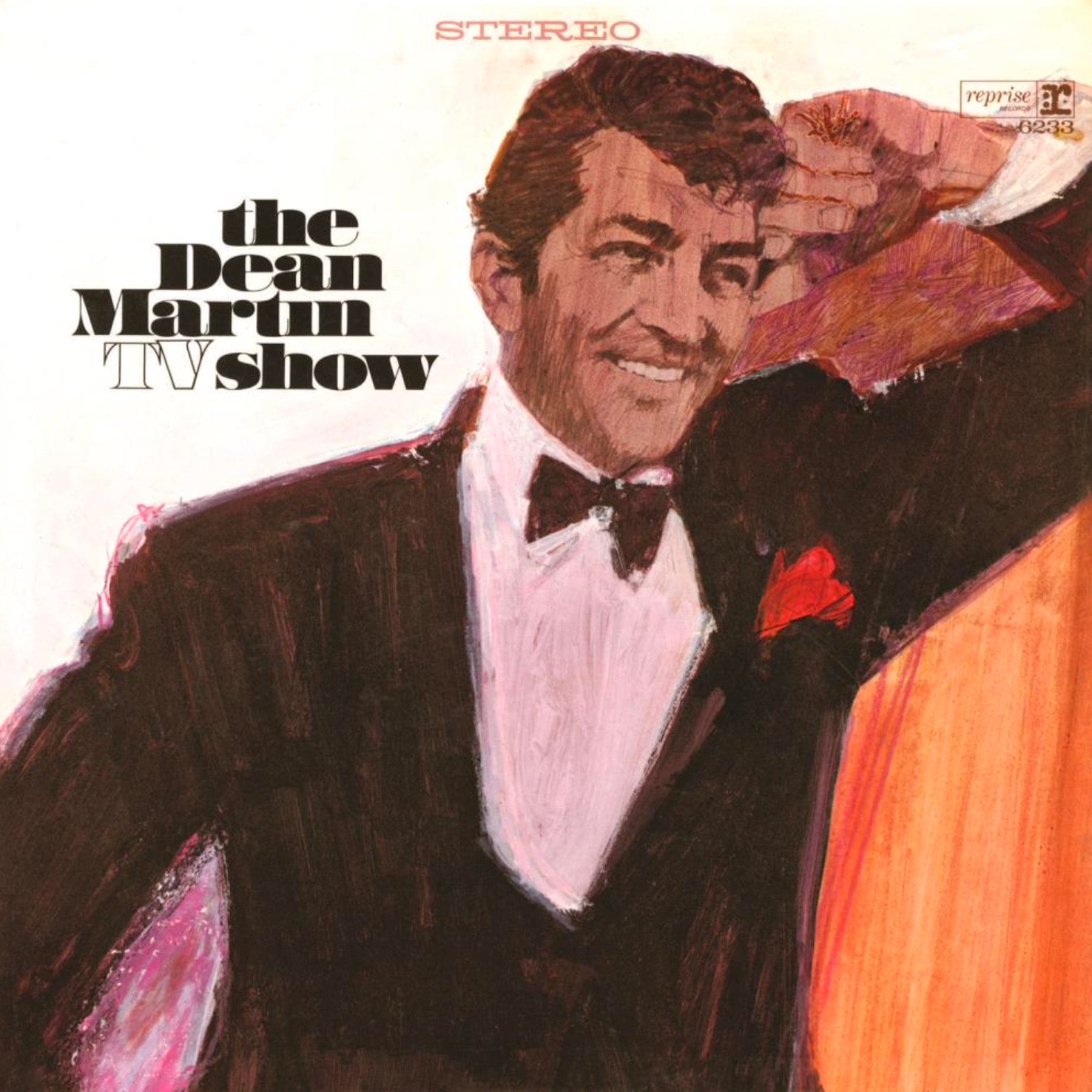
Across the show’s 264 episodes, he leaned into his lush-in-a-tux persona (his ever-present highball was filled with apple juice), while showing off his mastery of improv in comedic skits and delivering unforgettable performances solo and with his weekly guests. This dynamic mix vaulted Martin to even higher levels of fame and success, signing the biggest contract in the history of show business in 1967.
The show evolved into “The Dean Martin Celebrity Roast,” a riotous series of television specials where Martin led an all-star ensemble of his showbiz friends, including Muhammed Ali, Lucille Ball, Bob Hope, Ronald Reagan, and Jimmy Stewart, in trading playful jokes and over-the-top insults about the celebrity guest being roasted. This winning formula continued until 1984. Decades later, the Roasts were compiled into a DVD set that became one of the best-selling of all time while the “celebrity roast” concept that Martin pioneered continues to be a mainstay of modern television.
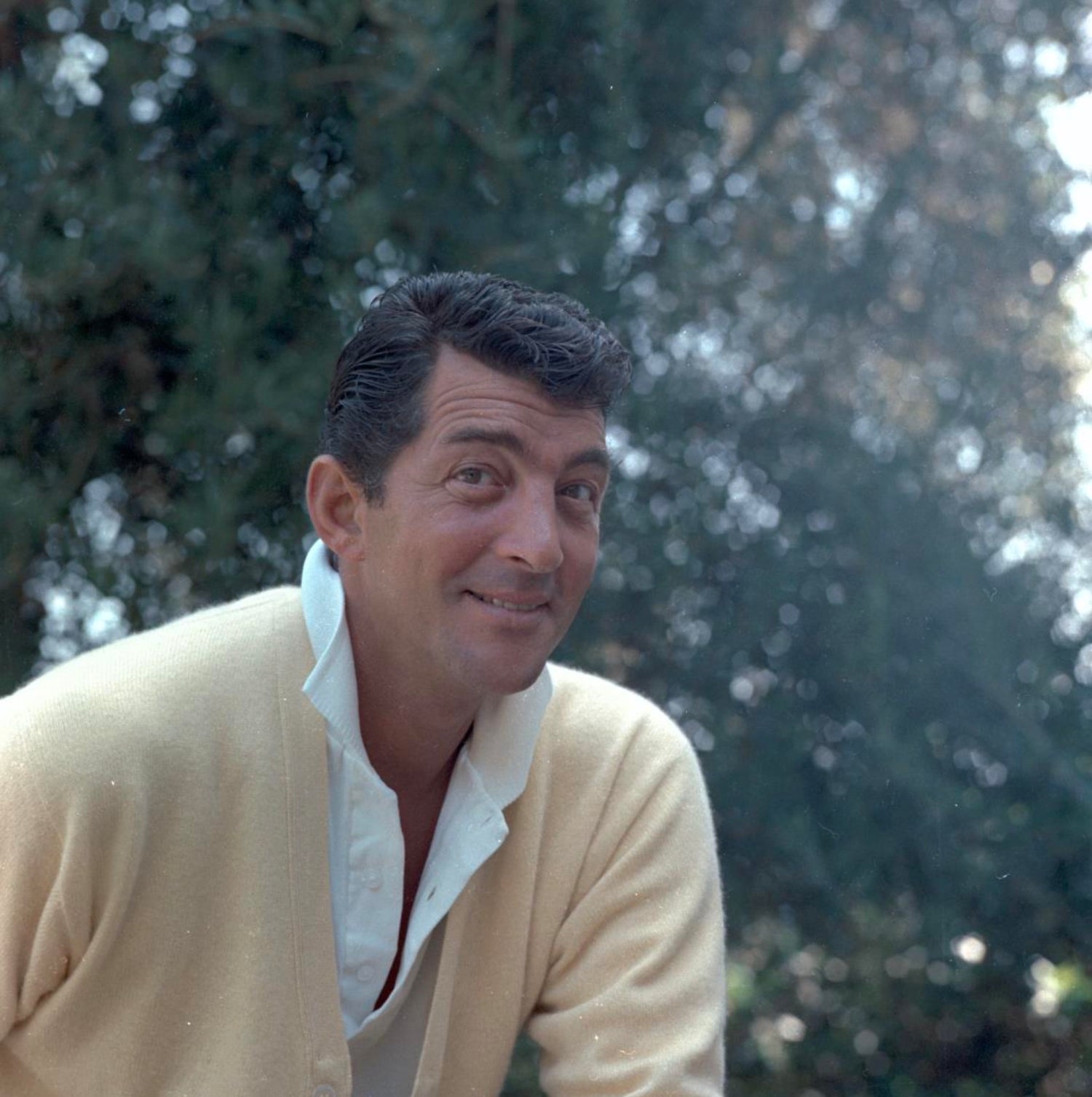
Throughout his time as a television star, Martin also created several beloved Christmas specials, including one in 1967 featuring both his family and Sinatra’s. He also recorded two holiday albums (A Winter Romance & The Dean Martin Christmas Album) that remain winter mainstays with his signature versions of “Let It Snow! Let It Snow! Let It Snow!,” “Silver Bells,” “A Marshmallow World,” and “Baby, It’s Cold Outside.” Today, his enchanting takes on seasonal standards remain staples on radio, television, and films every holiday season.
The only thing smoother than Martin’s crooning was his backswing. An avid golfer with a single- digit handicap, Martin often tailored his work schedule to accommodate his time on the links and even launched his own line of signature golf balls. In a delightful twist, we would forever change the game he loved. Legend has it that he and Sinatra would get thirsty playing 18 holes and demanded refreshments. The Desert Inn Golf Club in Las Vegas came up with an ingenious solution by transforming a golf cart into a fully stocked mobile bar. Since then, golfers around the world haven’t gone thirsty again.
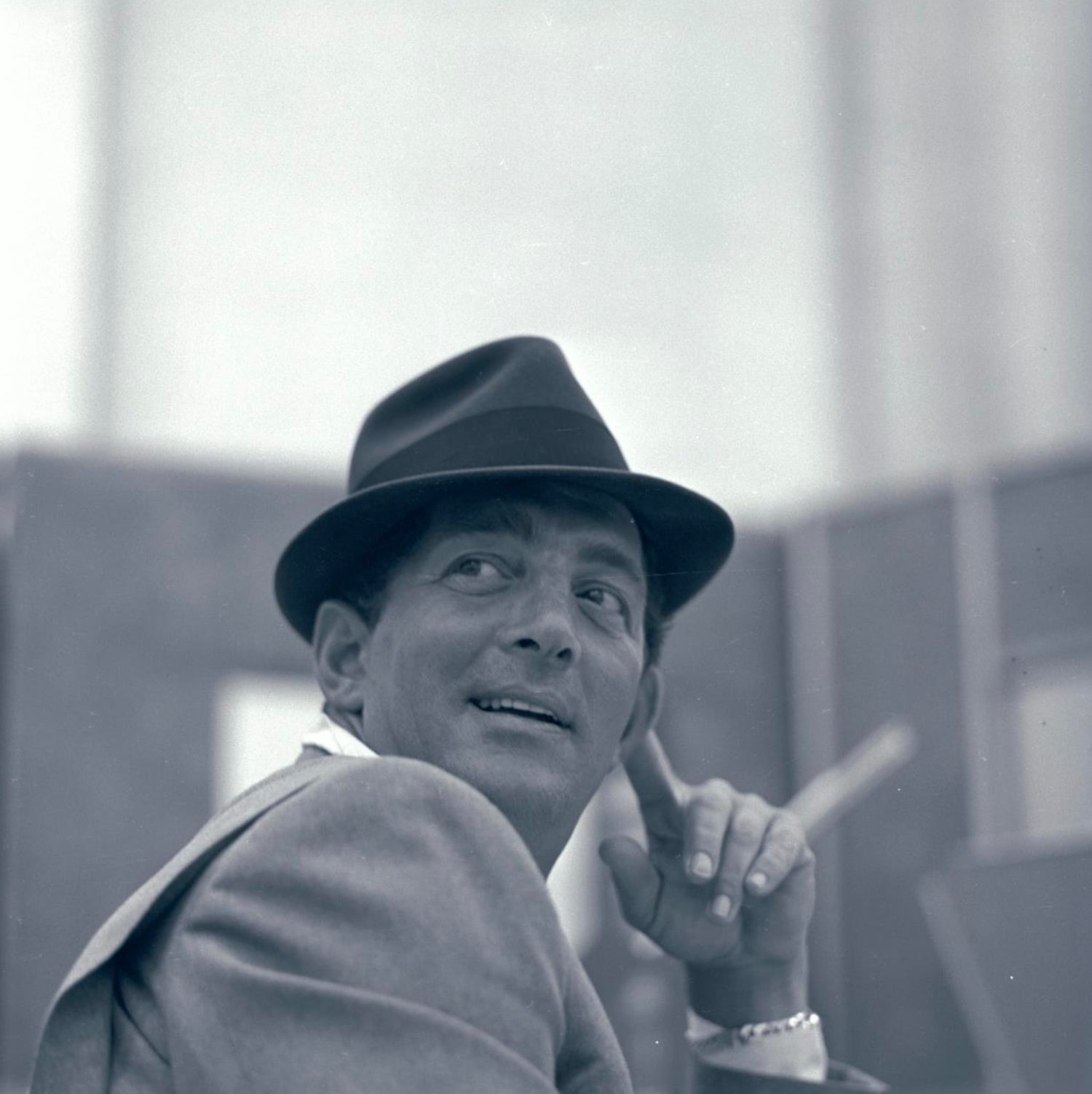
From the Space Age to the Digital Revolution, Martin’s reign as the King of Cool remains unbroken. His songs were streamed more than 800 million times last year, his presence resonates with over a billion views on TikTok, and DVDs featuring compilations of his television work have collectively sold nearly nine million copies.
Dean Martin was undeniably brilliant, an enigmatic force who dominated the panorama of popular culture for generations. A master of improvisation, a giant of comedic timing, a silver screen luminary, an embodiment of elegance, and one of the smoothest crooners of the 20th century, his legacy continues to illuminate the hearts of those who appreciate the art of cool.





